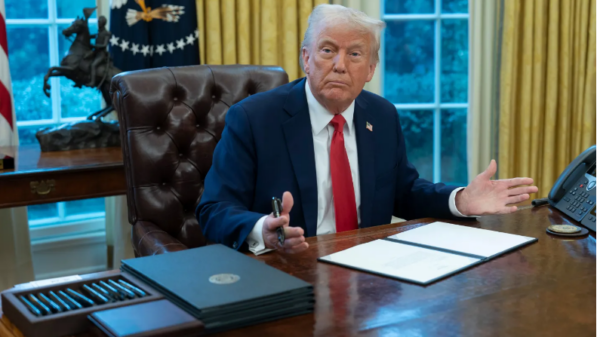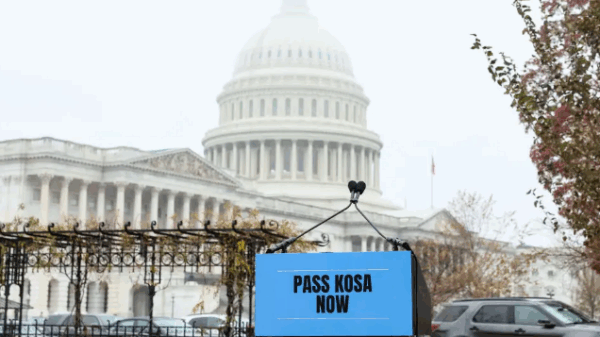The future of consumer financial protections is uncertain following a series of sweeping changes to the Consumer Financial Protection Bureau (CFPB) under the Trump administration. The agency, originally established to protect consumers from financial abuse, has been effectively sidelined as its leadership and operations face unprecedented upheaval.
The changes come at a critical time for millions of Americans burdened by medical debt. Misty Castaneda, a Colorado hair stylist, knows the impact firsthand. After undergoing a $200,000 open-heart surgery in 2010, she was left with $20,000 in medical debt, despite having insurance. The debt tanked her credit score, preventing her from renting an apartment, buying a car, or even obtaining a credit card.
Castaneda, now 47 and divorced, had been hopeful about a new CFPB rule finalized in January that would prevent medical debt from appearing on personal credit reports. But now, that rule—and the agency itself—hangs in the balance.
CFPB Operations Halted
Following Trump’s firing of the CFPB’s director, Office of Management and Budget (OMB) Director Russell Vought has been installed as the acting head. Under his direction, employees were ordered to halt all new regulations, suspend ongoing investigations, and cease communications. Vought also announced the agency would forgo its next funding draw from the Federal Reserve, calling it “not reasonably necessary.”
These moves, consumer advocates argue, have effectively paralyzed the CFPB and stripped it of its ability to enforce protections against corporate financial abuse. “The CFPB was established to take the side of ordinary people when Wall Street banks and big corporations rip you off,” said Lauren Saunders, associate director at the National Consumer Law Center. “Getting rid of it will just let corporate predators run amok.”
While the administration has nominated FDIC board member Jonathan McKernan to lead the CFPB, the agency’s future remains unclear. President Trump’s cost-cutting initiative, dubbed the Department of Government Efficiency (DOGE), has placed the bureau on the chopping block. Billionaire Elon Musk, a key advocate for DOGE, previously wrote on social media, “Delete CFPB. There are too many duplicative regulatory agencies.”
Impact on Consumers
One of the biggest concerns is the suspension of the CFPB’s rule that would remove medical debt from credit reports. The agency estimated the rule would eliminate $49 billion in medical bills affecting 15 million Americans. Now, with enforcement stalled, those individuals remain vulnerable to financial distress.
Gloria Austin, a 67-year-old Chicago resident, is one such person. Medical debt from two bouts of shingles in 2020 wrecked her credit score, forcing her to take out a car loan with a 30% interest rate. “No medical debt should appear on a credit report,” she said. “People are struggling enough already.”
Additionally, lawsuits challenging the CFPB’s recent regulations—including those targeting overdraft fees and predatory lending—are now in limbo. Under new leadership, the agency may choose not to defend these rules in court, effectively nullifying them.
CFPB’s History of Challenges
The CFPB was created in 2010 as part of the Dodd-Frank Act following the financial crisis. It was envisioned by then-Harvard professor and current Senator Elizabeth Warren as a watchdog against corporate financial abuse. However, Republican opposition to the agency has been strong from the start.
Since its inception, the CFPB has faced repeated legal challenges. In 2020, the Supreme Court ruled that its director could be fired at will by the president. In 2024, another Supreme Court ruling upheld the agency’s funding mechanism, allowing it to draw money from the Federal Reserve. However, with Vought refusing to request new funds, the agency’s future remains in question.
What’s Next?
For now, consumer protections remain in flux as the Trump administration reshapes the federal government’s regulatory framework. Many fear that without the CFPB’s oversight, banks and financial institutions will once again engage in predatory practices without consequence.
“The CFPB was created because other agencies failed to protect consumers,” said Julie Margetta Morgan, a former CFPB official. “If it disappears, millions of Americans will be left vulnerable.”
Meanwhile, the CFPB’s website now displays a “404: Page not found” error message, a stark symbol of its uncertain future.








































